Emmy award-winning Fil-Am producer: Patience goes a long way in Hollywood
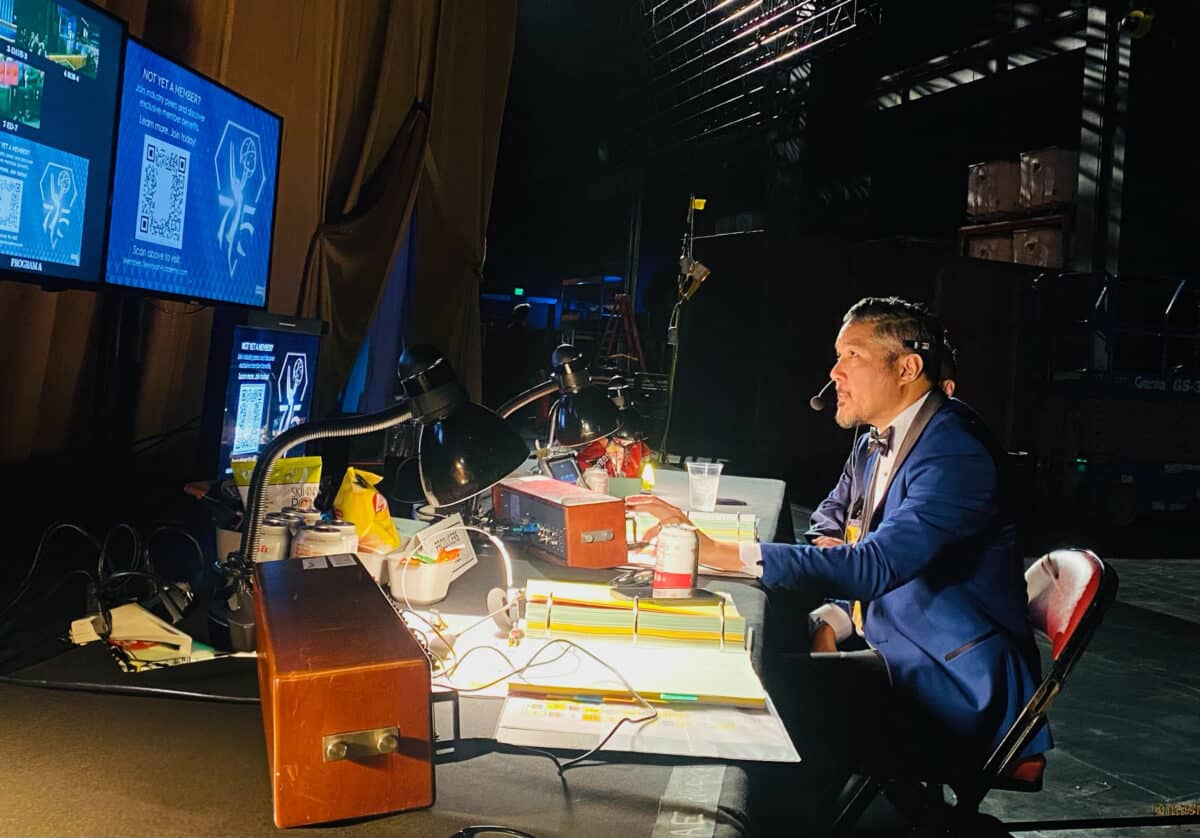
Augie Max Vargas / CONTRIBUTED
 NEW YORK — Emmy Award-winning producer Augie Max Vargas is a proud first-generation Filipino American who has scaled the heights of Hollywood awards shows. His most recent events were the recently concluded 76th Creative Arts Emmys and last month’s Miss USA 2024.
NEW YORK — Emmy Award-winning producer Augie Max Vargas is a proud first-generation Filipino American who has scaled the heights of Hollywood awards shows. His most recent events were the recently concluded 76th Creative Arts Emmys and last month’s Miss USA 2024.
He recalls starting 25 years ago with hardly another ethnic minority in showbiz. But over the past two decades, he has seen more and more minorities joining Hollywood productions on-stage and behind the scenes.
Diversity might grind slowly in Hollywood, but Vargas finds it all worthwhile. His own journey to winning the 2017 Primetime Emmy Award for “The Oscars: All Access” took 17 years to begin.
In mentoring TV and film students as a motivational speaker, his main message is that patience goes a long way in the entertainment business. Below are excerpts of our interview.
INQUIRER.NET USA (INQ): What inspired you to pursue a career in producing high-profile shows like the Oscars, Emmys and Grammys?
AUGIE MAX VARGAS (AMV): When I first got into the entertainment industry, I was working in the documentary series space. These are shows where they interview experts on a certain subject and then shoot reenactments with unknown actors. It was a great start, but a co-worker of mine was telling me how glamorous the awards show world was. And I just had to find out for myself.
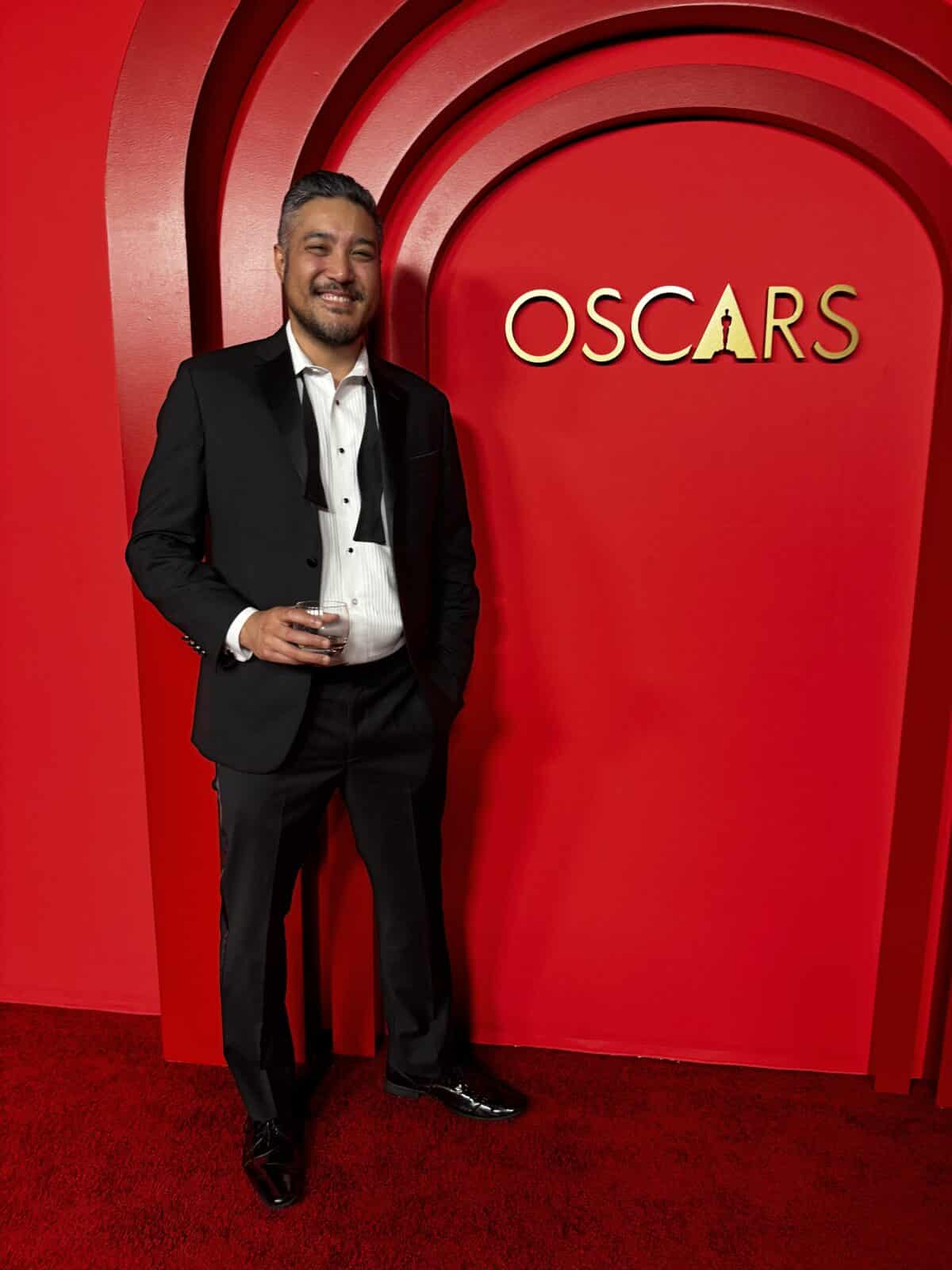
Augie Max Vargas / CONTRIBUTED
INQ: As a Fil-Am, how has your cultural background influenced your work in showbiz?
AMV: I believe that my cultural background shines brightest when it comes to my work ethic and my ability to get along with almost everyone. Although I was born in the United States, I did live in the Philippines from 8 months old to 4 years. I would visit often after returning to the US, so I always had my family to keep me grounded and make me appreciate how great I had it as a Fil-Am. I’m always very grateful for the opportunities I’ve received and earned, and do my best to make my coworkers feel comfortable and happy.
INQ: What do you believe sets your productions apart from others in the industry, leading to Emmy wins and critical acclaim?
AMV: I’ve been very fortunate in that I was able to work with the most elite in my field very early in my career. There are levels to the entertainment industry, and when you work with the best, you start to become the best. But most importantly, I think the productions I get to help lead are usually fun environments because I try to make them that way. They’re not all like that. In fact, our industry is known for having some toxic environments at times. I strive to avoid that.
INQ: Can you share a memorable behind-the-scenes moment from producing or directing one of the major awards shows you’ve worked on?
AMV: When I worked on the Grammys, I would go to rehearsals that took place off-site and get to watch very intimate rehearsals with people like Mick Jagger, Bob Dylan, Stevie Wonder, Justin Timberlake, Prince and Beyoncé. I’ve worked on a music special at the White House and shaken hands with President Obama. I’ve also been to 10 different Super Bowls and worked on the music iconic Halftime Shows. It’s really hard for me to recall just one memorable moment because I’ve had so many.
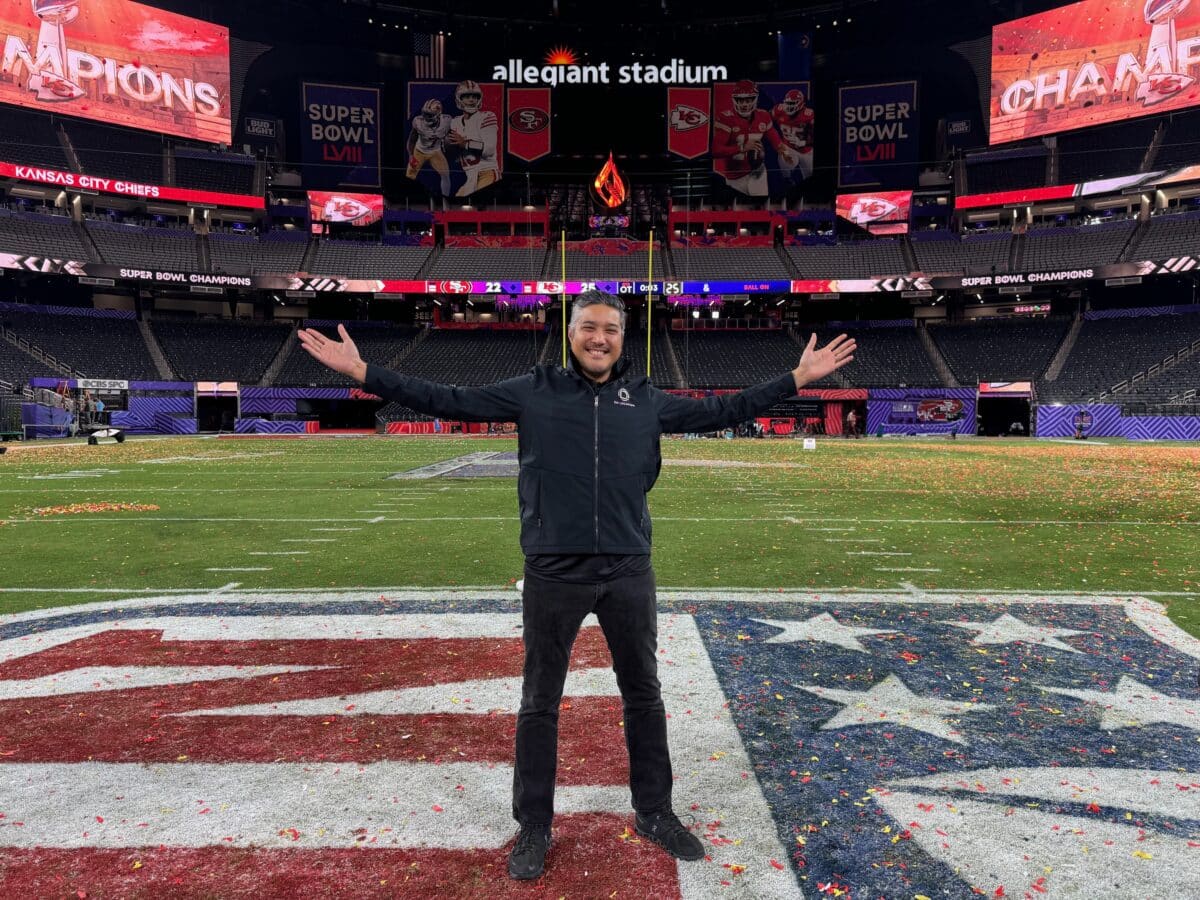
Augie Max Vargas / CONTRIBUTED
INQ: How do you approach the challenge of keeping each awards show fresh and engaging for viewers year after year?
AMV: You definitely have to try and avoid repeating the same things you’ve done before. Although in certain cases like awards shows, you can only do so much changing of the format. Some wheels don’t need to be re-invented. Mostly though, it’s booking the freshest talent and making sure the script isn’t corny.
INQ: What advice would you give to aspiring producers looking to break into the world of entertainment events?
AMV: Be patient and listen more than you speak. Soak up all the knowledge you can from the experienced people above you and eventually when it’s your time, you’ll have the opportunity to share your opinion and creative ideas. Also, network with as many people as you can because that’s how opportunities come your way. No one is going to show up on your doorstep and ask you if you want to produce a show. Put yourself out there by interacting with like-minded people and make sure when superiors are in the position to hire that they think of you in a good way.
INQ: How do you navigate the pressures and responsibilities that come with producing live television events with millions of viewers worldwide?
AMV: I try to stay calm and not panic. I try not to take on too much and delegate to my team and put some trust in them. I try to game plan as much as possible and think of every scenario that could happen so I can have a plan ready. Live television is unpredictable, but that’s why people are drawn to it. Anything can happen. We just have to be prepared for those inevitabilities.
INQ: What has been the most rewarding aspect of your career as a producer of prestigious awards shows?
AMV: When I was a kid, I used to hate doing homework at school. I would get in trouble a lot for not turning in homework because it didn’t excite me. In this industry, I’m always excited and curious because the homework is watching movies, shows and listening to new music to make sure I’m in-the-know. A few years ago when I worked on The Oscars Digital Experience, I would watch all of the nominated films including the short films and foreign films. This helped me produce a better show because I knew all the actors and filmmakers who would be on the red carpet or just have a good idea of who would be the favorite to win an award.
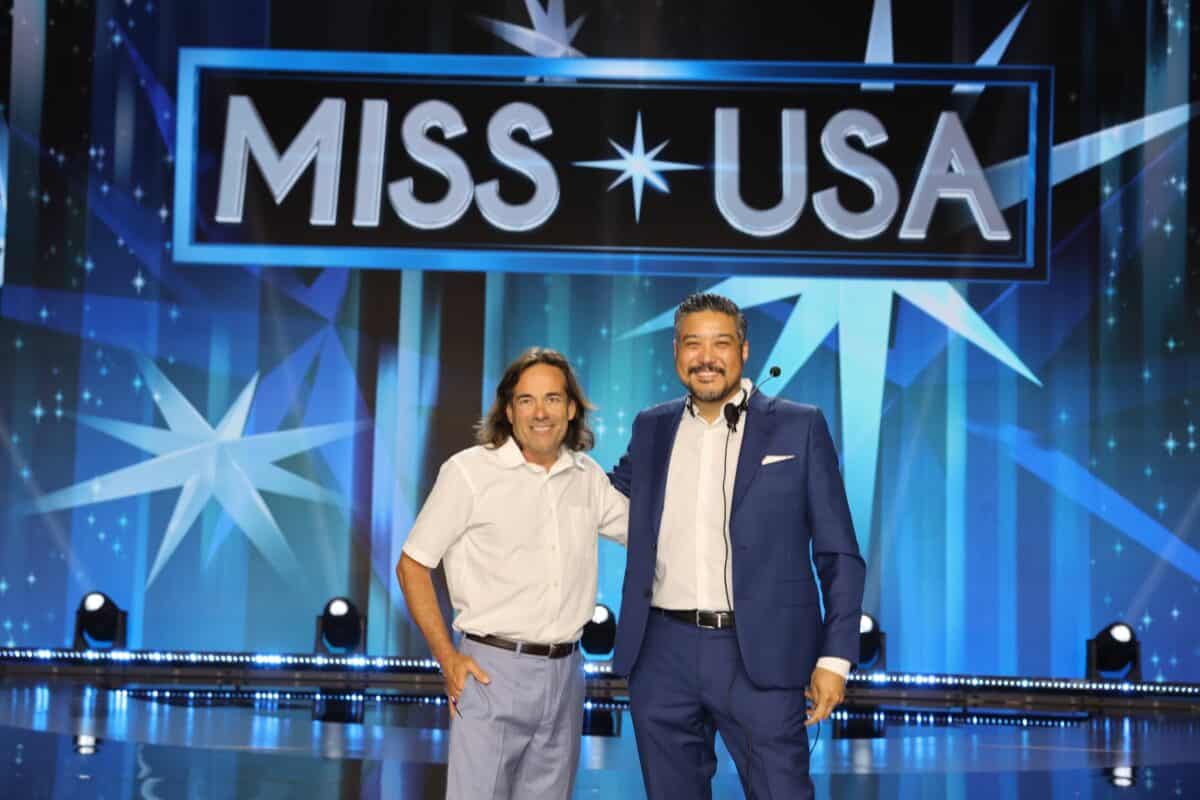
Miss USA Executive Producer Augie Max Vargas (right) with Co-Executive Producer Renato Basile. CONTRIBUTED
INQ: In what ways do you strive to promote diversity and representation in the entertainment industry through your work?
AMV: The last few years as a producer on shows like the Creative Arts Emmys and Film Independent Spirit Awards, I’ve had the pleasure of getting to help pick talent who would present awards. I’m always trying to make sure there is a good balance of diversity that represents the world I live in. I know how important it is for an Asian kid to see an Asian performer featured because when I was younger it was rarely the case. When you see someone who looks like you doing something special, then it makes you believe you can do that too.
INQ: Looking ahead, what new projects or goals are you eager to pursue in your career as a producer? Is there another show you aspire to produce, considering your extensive portfolio already?
AMV: I would love to be the showrunner for all the big shows. I’ve worked on a lot of them in various capacities but rarely at the very top. I’m currently developing a few projects as well that are outside of the awards show world. If I had my way, I’d be creating content in every space of entertainment including movies, musicals, music videos and social media.
INQ: Could you elaborate on the distinctions between Filipino productions and mainstream productions, and how each can benefit from learning from one another?
AMV: I don’t really know enough about the behind-the-scenes on Filipino productions as I’ve never worked on one, only what I’ve seen on TV when I visit the Philippines or watching TFC or ABS-CBN when I visit a family member that would have it on. What I would say is that there’s obviously cultural differences, especially when it comes to humor. What’s funny over there may not resonate with the audiences here and vice versa. As for learning, anyone can learn from anyone, you just have to be open to it. I’m sure there might be some unique things being done on Filipino programming that could be incorporated in the States. I’ve always noticed that the Philippines would be ahead of the curve on certain things like mobile phone texting and fashion, so I don’t doubt there would be other things.
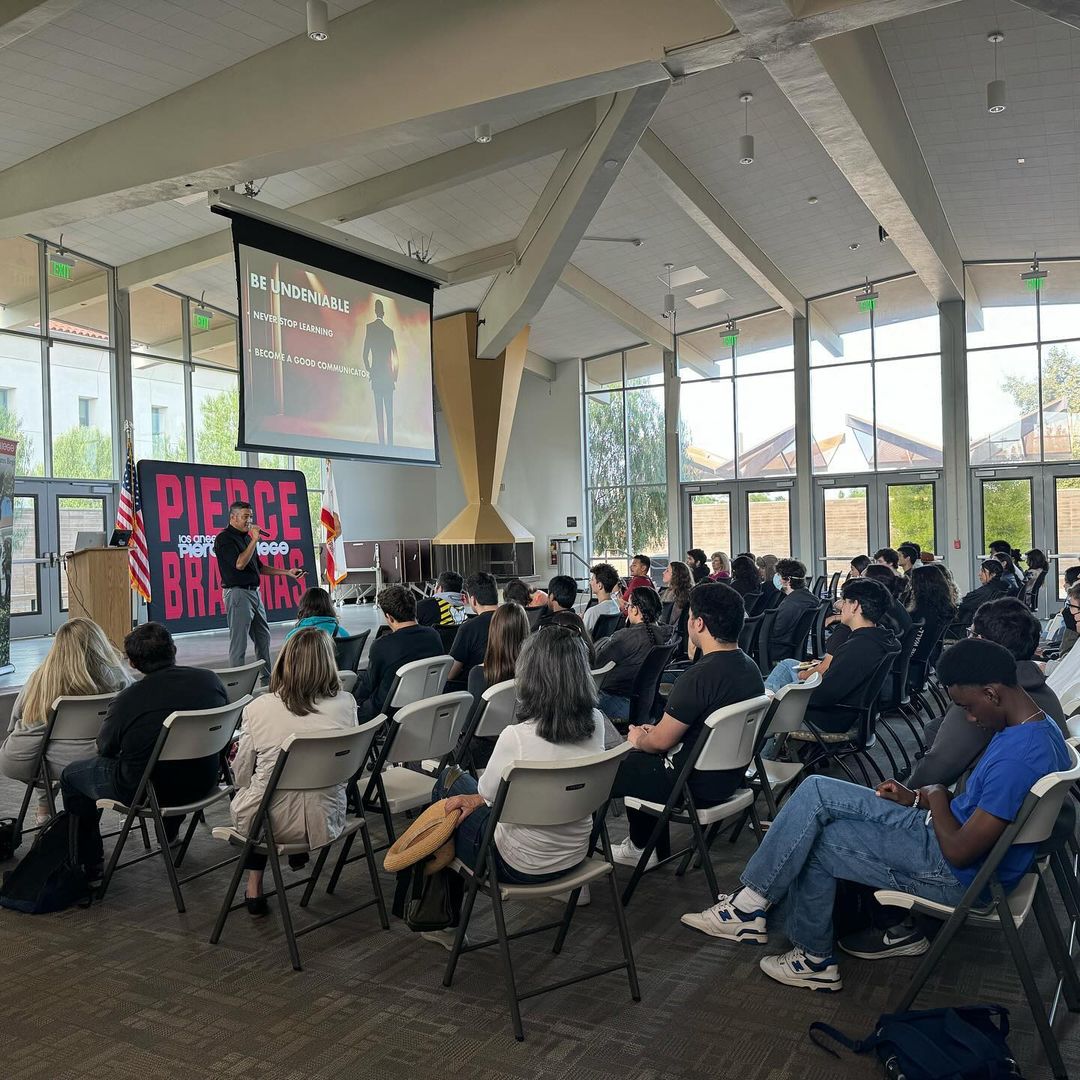
Augie Max Vargas, who mentors TV and film students as a motivational speaker, addresses students at Pierce College. CONTRIBUTED
INQ: Have you had the opportunity to produce a Filipino production? Could you share your experience with us? How does this compare with your mainstream productions?
AMV: I have not yet but I am very open to it. I sit on the board of the non-profit organization FACE (Filipinos Advancing Creative Education) and we are trying to find ways to collaborate more to bridge the gap between our kababayan on the Islands and the ones in other countries.
INQ: In addition to your roles as a producer and director, you are also recognized as a motivational speaker. Could you share the story of how this aspect of your career developed?
AMV: Probably about a decade ago some of my friends and family would reach out to me and ask me to speak to a young person they knew who wanted to get into the entertainment industry. I would end up speaking to about three to four different kids a year about my experiences and advise them on how I thought they should proceed. One of my colleagues in the industry, who also was a professor on the side, invited me to come to his class and be interviewed. It was a fun experience and I’ve been actively trying to speak to more and more students as it’s very rewarding for me to share my experiences and knowing that it will help them along the way.

